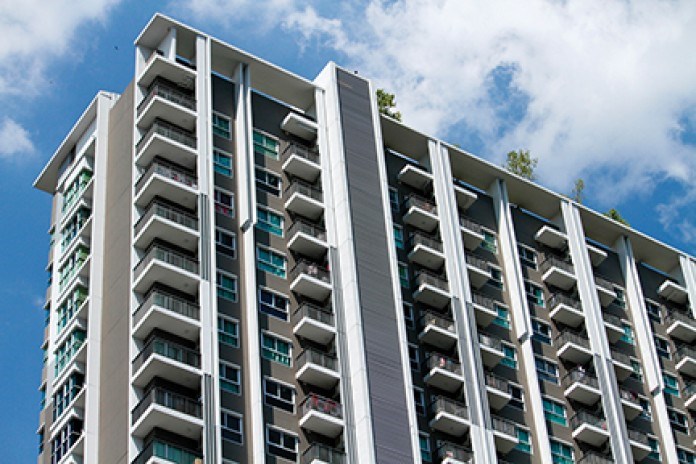As B.C. strata ownership expands Into the commercial sector and rules on wind-ups and rentals change, the shortage of experienced property managers is becoming acute and obvious.
Statistics Canada reports a shortage of about 100 vacancies for “property administrators” in the province, while some property management firms suggest the total could be closer to 200 property managers.
The shortfall comes even as the BC Financial Services Authority reports that the number of licensed strata property managers is increasing, rising from 1,326 in March 2019 to 1,405 in March 2022.
Despite the greater number of licensees, Roger Williams, executive director with the Professional Association of Managing Agents, said it’s unknown how many are actively managing properties.
As pressure mounts, so do the number of managers who are facing burnout and walking away.
“The problem could be worse than the records show,” Williams said, pointing to an estimate from the Condominium Home Owners Association of BC, indicating that just 500 to 800 licensees are actively engaged in managing the province’s 800,000 residential strata units.
“Virtually every industry at every level is suffering from staff shortage,” Williams said. “Qualified individuals licensed for property management are not sitting on a shelf. Licensing education takes time and real qualification and competence require much more education and experience and more time.”
But turnover is high. The intensity of the business means many burnout quickly, with the average tenure of a property manager being three to five years. This means that many property managers never build the track record and experience that help them to do their job, putting more strain on the competent cohort that have.
Under B.C.’s Strata Property Act, strata corporations, whether commercial, residential or mixed use, are all treated the same. Changes to the act, therefore, now demand a higher level of expertise and can affect a wide swath of industrial, retail and office space owners.
One key change is that an 80 per cent vote is now sufficient in B.C. for owners in a strata corporation to decide to disband the strata and sell the entire building for redevelopment, a move known as a strata wind-up.
These can be complicated.
One Â鶹´«Ã½Ó³»wind-up now before the courts involves a six-unit, six-floor residential condo tower where five of the six owners sold to an investor/developer but one owner refused and went to court to stop the sale. It is expected take months before the appeal is decided, despite the majority vote.
In mixed-use strata projects where there is ground-floor commercial beneath a greater number of residential strata, a vote by the residential owners can force the sale of the building, even if the commercial owners want to stay.
The most famous case of this was in Whistler, when four retail properties were outvoted when residential owners in a mixed-use strata voted to sell the entire complex.
That 2020 dispute led to other commercial strata owners forming a separate strata corporation when they are part of mixed-use residential project. This requires either another property manager or, more likely, expands the duties of the residential strata manager.
Rentals outlawed
Last year, the B.C. government changed the Strata Property Act to outlaw rental restrictions, which has ramped up pressure on both owners and property managers.
Owners of condos in older buildings say they fear their strata councils being overrun by people buying apartments as investments, who may not be willing to take on volunteer tasks or vote to pay for needed repairs.
Many fear their strata insurance rates will skyrocket. They’re also concerned their strata manager will be forced to take on roles of dealing with tenant complaints when owners aren’t available.
“I’ve lost sleep a couple of nights,” said Tina Hopkins, the president of a three-person strata council for an older building at Queen Street and Westview, occupied mostly by retirees. “There’s been a lot of angst.”
Since new condo buildings are already required to allow rentals, the changes apply to older buildings built before 2010.
Hopkins said she’s bracing for a headache. Invariably, when problems with rental apartments came up, the owners can’t be found and the manager and volunteers must deal with problems, she said.
Sandra Leidl, strata president of a 29-unit building in North Â鶹´«Ã½Ó³»has similar concerns.
Leidl said the need to quickly create new bylaws governing rentals will mean new legal fees. In the past, her building did allow a small number of rentals, said Leidl. But the strata council changed its mind when they ran into “serious issues” with some tenants, she said.
Leidl said she also fears the impact of potential real estate investors on old buildings needing maintenance and repairs – “There are a lot of ‘ifs’,” she said.
But making all stratas rentals also opens the door for investors to buy prime condos in high-end Metro Â鶹´«Ã½Ó³»properties, where rentals had been banned, real estate agents have told Western Investor.
Allowing rentals is expected to have a zero impact on commercial stratas, since most of them are newer buildings and the majority of strata units are occupier-owned by local businesses and professionals.
“We have very few investors buying strata units,” said Michael Hungerford, partner of Hungerford Properties, one of the most prolific developers of industrial and office strata buildings in British Columbia.



